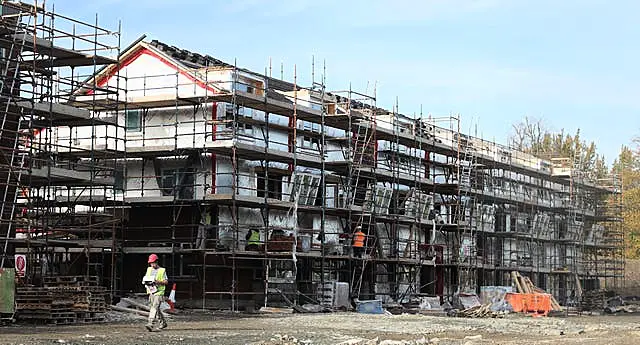The rate of homebuilding in Ireland could increase to 40,000 annually within a couple of years, Tánaiste Micheál Martin has predicted.
Mr Martin said the Government has to keep looking at ways to accelerate housebuilding in the country, pledging that ministers would “spare no effort” to match supply with demand.
Opposition parties have been strongly critical of the Government’s measures to deal with a housing crisis in Ireland, insisting that targets for building and social and affordable housing have been consistently missed.
The Government has previously said that its overall housebuilding target of 29,000 homes for 2023, outlined in the Housing For All strategy, would be exceeded.

Mr Martin said the number of new homes being built would continue to increase year-on-year.
He said: “We do want to get to a higher number than 30,000 and what I would like to think in 2024 we can build again on what we’ve achieved in 2023.
“Some people are estimating 32,000 homes for this year. We’ll wait for the final figures in quarter one.”
Mr Martin said 100,000 new homes had been built since the coalition government took office.
He added: “The pipeline is strong on social housing, strong on a number of fronts.
“But we have to keep on looking at ways to accelerate housebuilding and that relates to capacity within the housing industry.
“There’s a number of strands of work that are under way under the cabinet’s subcommittee in terms of public investment, in terms of private investment, in terms of human resources, in terms of recruitment, apprenticeships and so on, to make sure the capacity will come.
“There’s lots of factors to come together to increase productivity and capacity.
“We will spare no effort. The targets we have are not limits, if we can exceed those targets, we will.”
Mr Martin added: “We’ve increased 40% over the last few years. So that is quite a dramatic increase.
“We are not going to get to 40,000, on top of 32,000 this year.
“But I think we will incrementally increase.
“Within a number of years, we could be at 40,000 per annum.”







